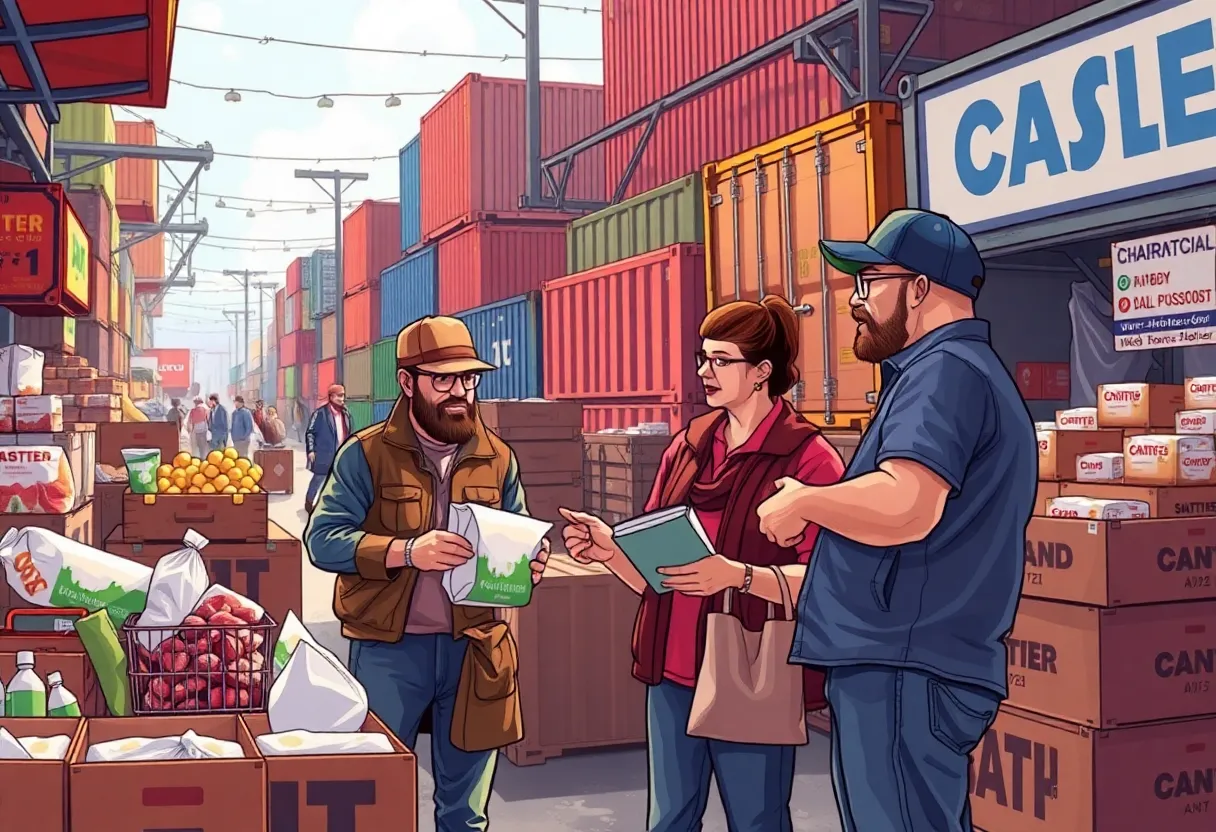News Summary
Southern California small business owners are grappling with the challenges posed by new tariffs, particularly on imports from China. This change, effective April 2, is forcing local businesses to adapt their sourcing strategies and manage rising costs. Retailers like Jack Carlisle’s The Potting Shed are adjusting their buying practices while maintaining vendor relationships to mitigate impacts. The looming threat of decreased imports and economic uncertainty is prompting innovation among some manufacturers, yet critics warn of inflationary pressures affecting consumers and businesses alike.
Southern California small business owners are facing significant challenges as they adapt to new tariffs imposed by the Trump administration. Beginning on April 2, these tariffs, particularly heavy on imports from China, are forcing local businesses to rethink their sourcing strategies, manage costs, and innovate to remain competitive in a changing economic landscape.
Jack Carlisle, the owner of The Potting Shed located in Orange’s historic downtown plaza, is among those feeling the effects. His 8,000 square-foot store, which has an annual sales figure exceeding $1 million, sells a diverse range of products including plants, pots, soil, and houseware items. Carlisle’s experience with the tariffs has been reminiscent of the struggles during the COVID-19 lockdown, a time that saw a surge in consumer interest in gardening and home improvements. As a response, he is meticulously adjusting his inventory buying practices and fostering stronger relationships with his vendors to keep costs down.
One notable strategy includes working with a Canadian ceramic pot maker that is storing inventory in San Diego at pre-tariff prices. This collaboration serves as an example of how Southern California business owners are exploring alternative solutions to circumvent the pressures of rising import costs. The National Retail Federation has warned that if the tariffs remain, U.S. imports could decrease by over 20% in the latter half of 2025, intensifying the ongoing struggles faced by retailers.
Major ports such as Long Beach and Los Angeles are bracing for decreased cargo volumes, particularly those shipments coming from China, where tariffs can be as high as 145%. This decline in import activity significantly impacts various sectors, notably small aerospace manufacturers. Companies like Aura Seating in Torrance have faced severe repercussions, laying off half their workforce due to escalating costs stemming from tariffs on components sourced from China. Similarly, Independent Forge Co. in Orange, which produces parts for Boeing aircraft, is seeing a decline in overseas business as their supply chains are disrupted by increased tariffs and a volatile market.
Despite the challenges, some manufacturers are successfully navigating the difficulties posed by tariffs. For instance, Lily Jack, a furniture producer, has managed to avoid additional costs by ensuring compliance with the USMCA trade agreement. Experts believe that these tariffs may be prompting small businesses to innovate and explore alternative strategies, ultimately fostering resilience in the marketplace.
The predictably rising costs are creating uncertainty among larger vendors as well while they reassess order placements with their smaller suppliers. Consumers, too, are feeling the ramifications, with expectations that prices for various goods including electronics and furniture may increase due to these tariffs. Meanwhile, supporters of the tariffs maintain that such policies will benefit the U.S. economy in the long run, despite short-term price hikes.
Critics of the tariffs caution, however, that these measures will likely lead to inflationary pressures and exacerbate economic uncertainty for both consumers and businesses alike. The ongoing turbulence highlights the urgency for businesses to adapt and innovate in an unpredictable economic environment.
As Southern California small business owners continue to navigate these turbulent waters, strategies such as enhanced vendor relationships, careful inventory management, and compliance with trade agreements are becoming essential to mitigate the impact of tariffs. The future of many businesses remains dependent on their ability to adjust and innovate in response to these economic challenges.
Deeper Dive: News & Info About This Topic
- OC Register: Southern California Business Owners Get Creative as Tariffs Surcharges Hit
- Wikipedia: Tariff
- NBC Los Angeles: Orange County Business Owners Brace for Effects from Trump’s New Tariffs
- Google Search: Tariffs impact on business
- ABC7: OC Vietnamese Coffee Shop Da Vien Expanding New Locations Despite Tariffs
- Encyclopedia Britannica: Economic Sanction
- Spectrum News1: Trump Tariffs Impact on Orange County Businesses
- Google News: Orange County tariffs

Author: STAFF HERE CORONADO
The Coronado Staff Writer represents the experienced team at HERECoronado.com, your go-to source for actionable local news and information in Coronado, San Diego County, and beyond. Specializing in "news you can use," we cover essential topics like product reviews for personal and business needs, local business directories, politics, real estate trends, neighborhood insights, and state news affecting the area—with deep expertise drawn from years of dedicated reporting and strong community input, including local press releases and business updates. We deliver top reporting on high-value events such as the Coronado Island Film Festival, productions at Lamb’s Players Theatre, community workshops at John D. Spreckels Center, and iconic celebrations at Hotel del Coronado. Our coverage extends to key organizations like the Coronado Chamber of Commerce and Visit Coronado, plus leading businesses in hospitality, dining, and tourism that drive the local economy. As part of the broader HERE network, including HERESanDiego.com, HEREHuntingtonBeach.com, HERELongBeach.com, and HERELosAngeles.com, we provide comprehensive, credible insights into Southern California's dynamic landscape.


